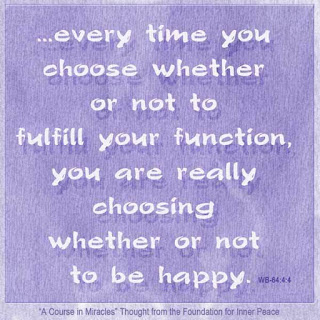“Give me a BIG ’C’, little ‘o’, little ‘n’, little ‘t’, little ‘r’, little ‘o’, little ‘l’.
What have I got? Control - CONTROL – CONTROL!!! Yea!”
Okay, so maybe we do not make a cheer out of it, but do our actions and attitudes yell – nay, demand – control?
Here is the irony about control. The more controlling you are of others and of situations, the less in control you are of yourself. The more in control you are of yourself, the less controlling you will be of others. Or things or situations for that matter.
Control yourself – your attitudes, your actions, your thoughts, your behaviors, your prejudices – and see how much life begins to flow. You cannot control another, but you do influence him/her. And the less controlling your demeanor is, the more influential you are.
YES YOU CAN control your thoughts. As a youth, I went to a horror movie that impacted my life forever, but at the time I thought the only thing I learned was to never attend scary movies again. Planet earth had been invaded by alien creatures with the intent to destroy all humans. The aliens looked alike and had the ability to read a person’s mind – but only the frontal lobe. Since the aliens could read the human’s frontal lobe, they were aware of plans to destroy them, and thus thwarted all attempts. Except for one man. He prepared a bomb to blow up the intruders, but when he was in their presence, he consciously made himself think only of a brick wall.
He would deliberately say to himself, “Brick wall. Brick wall. Brick wall” over and over to keep his other thoughts at bay. It worked. All the aliens gathered around him, trying to determine the meaning of ‘brick wall’; the bomb went off and - amid eerie music - the aliens were blasted to bits, with their eyes glowing in the fire.
When destructive thinking invades, I consciously make myself think only of a brick wall. I deliberately say to myself, “Brick wall. Brick wall. Brick wall” over and over to keep other thoughts at bay. It took time to learn, but it works.
The gossip I wanted to share, the ill feelings toward another person, the negatives about myself and life, the fantasies that invaded, I deliberately destroyed them all by blocking the thoughts. And although their eyes glowed for awhile, they soon faded and are no longer a part of my life. When new destructive thoughts try to come in, it is easy to shoot them down. You can change your mind. And doing so keeps it clean and happy.
YES YOU CAN control your attitude. Attitude is habits of thoughts, and habits can be changed. Change your attitude by developing a larger perspective than the one you have now. Challenge yourself to see outside yourself, to celebrate a life other than your own. Deliberately raise your horizons and consciously grow less selfish. Changing your attitude is accomplished by being open to change, by welcoming diversity, by appreciating all people and by a willingness to learn from all experiences.
YES YOU CAN control your life. Victor Frankl wrote in Man‘s Search for Meaning, “Man is ultimately self-determining. Man does not simply exist but always decides what his existence will be, what he will become in the next moment… Man is capable of changing the world for the better if possible, and of changing himself for the better if necessary.”
YES YOU CAN Take Charge of Your Life and be in control of many - perhaps most - personal elements of your life. NO YOU CANNOT control another and certain other things such as the weather.


